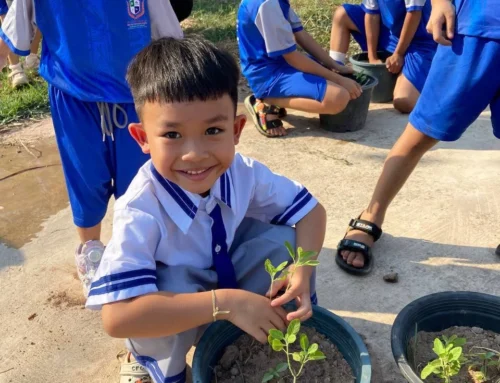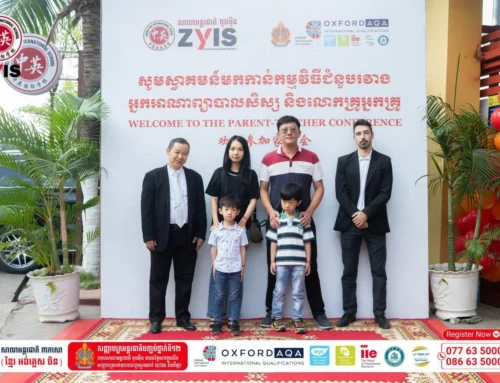Some children seem to learn faster, ask deeper questions, or show intense curiosity from an early age. As a parent, you might wonder: Is my child gifted or just academically advanced? Understanding the difference—and knowing how to respond—can help your child reach their full potential without pressure or burnout.
In Cambodia’s growing education landscape, it’s important to recognize, nurture, and support gifted and advanced learners in Cambodia in ways that are developmentally appropriate and emotionally balanced.
Gifted vs. Advanced: What’s the Difference?
While both gifted and advanced children may outperform their peers, there are key differences:
-
Advanced learners typically perform above grade level in one or more subjects due to strong motivation, exposure, or support.
-
Gifted learners show exceptional natural ability in cognitive, creative, or leadership areas—and often think and learn in unique ways, not just faster.
Giftedness isn’t always about high grades. Many gifted children can appear disorganized, bored, or socially different in a regular classroom because their needs aren’t being met.
Common Traits of High-Potential Learners
Not all gifted or advanced learners will have the same characteristics, but here are some signs to look for:
-
Early reading or strong vocabulary at a young age
-
Deep curiosity, often asking complex or abstract questions
-
Strong memory and quick learning with little repetition
-
Highly imaginative or creative thinking
-
Strong sense of justice or intense emotional sensitivity
-
Boredom or frustration in traditional classroom settings
In Cambodia, where class sizes may be large and curriculums often focus on rote learning, these learners can easily be overlooked or misunderstood.
What You Can Do at Home
Whether your child is gifted, advanced, or somewhere in between, here’s how you can support them:
1. Feed Their Curiosity
Encourage exploration of topics they enjoy—even if it’s outside the school curriculum. Use books, documentaries, puzzles, and local experiences to go deeper into areas of interest.
2. Encourage Open-Ended Thinking
Ask questions like:
-
“What do you think would happen if…?”
-
“Why do you think that’s true?”
-
“How else could we solve this?”
This strengthens creativity and critical thinking.
3. Support, Don’t Pressure
It’s tempting to push your child ahead, but high-potential learners still need emotional support, time to play, and room to be children. Celebrate effort, not just achievement.
4. Let Them Make Mistakes
Gifted children can be perfectionists or fear failure. Create a home environment where making mistakes is seen as part of learning.
Supporting Gifted Learners in Cambodian Schools
Cambodia is still developing formal systems for identifying and supporting gifted students, especially in public schools. However, you can:
-
Talk with your child’s teacher: Share your observations and ask about enrichment opportunities.
-
Look for flexible schools: Some international or private schools offer individualized learning, project-based curriculum, or acceleration options.
-
Consider enrichment programs: Some centers in Phnom Penh offer critical thinking, STEM, or creativity workshops.
-
Explore online resources: There are global platforms and courses for advanced learners in math, science, writing, and coding.
When to Consider an Assessment
If your child consistently shows signs of advanced ability, consider a cognitive or educational assessment. These can help:
-
Identify giftedness or learning profiles
-
Guide school placement or teaching strategies
-
Uncover hidden challenges (like ADHD or twice-exceptionality)
You can request assessments from qualified centers in Cambodia that specialize in educational and psychological evaluations.
Every child has potential—but gifted and advanced learners may need extra care, understanding, and the right opportunities to flourish. With your support at home and the right environment at school, your child can grow not just academically, but also emotionally and creatively.
If the information about the school is not accurate and insufficient, Contact us.
Do you want to register your school? Click here.







